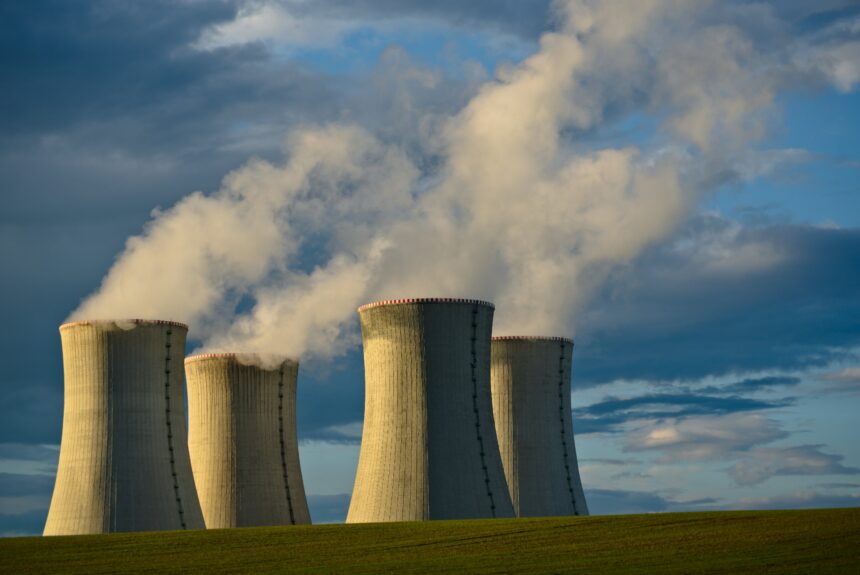Nuclear energy, derived from an atom’s core, has been an ongoing debate for decades. The world is searching for better energy resources, and many consumers think nuclear energy is the best route to take. However, some are apprehensive as the list of pros and cons of nuclear energy grows.
Breaking Down Nuclear Energy Pros and Cons
Nuclear energy pros and cons are evenly split since each point has a direct counter argument. Nonetheless, debating the use of atomic energy as a resource means understanding the arguments on both sides.
Nuclear Energy Pros
Nuclear energy is America’s largest source of clean energy and provides pollution-free power. While the large cooling towers are intimidating, what they’re releasing isn’t waste – it’s water vapor.
>>>READ: Let’s Remind Ourselves Again: Nuclear Energy Is Safe
In fact, atomic energy is one of the fastest ways to decarbonize an electric grid. Countries like France, Saudi Arabia, Canada, and South Korea have all recorded the fastest decline in carbon intensity due to the use of nuclear resources as energy.
It’s also safer than fossil fuels, which killed millions of people globally in 2018. Compared to that, nuclear accidents have happened only three times in the past 70 years.
Only one of those accidents (Chornobyl – which was a result of faulty Soviet equipment) resulted in death. Nuclear is responsible for fewer deaths per kilowatt-hour than wind and solar.
While nuclear waste can be dangerous, almost all of it can be recycled and used again for further energy use or stored safely. That makes the energy source a no-brainer to addressing climate change.
Atomic energy is also a source of high-capacity power, and the plants require less maintenance than wind or solar. In fact, operations can run for two years before refueling is needed and they can run at maximum power for almost the entire year.
Nuclear Energy Cons
The main argument to rise from those who hesitate to use nuclear energy surrounds its history, which started with the atomic bombing of the Japanese cities of Hiroshima and Nagasaki in World War II.
The death and destruction caused in both bombings, layered with recent Russian-Ukraine turmoil, has created strong apprehension as people fear what nuclear power could become in the wrong hands.
>>>READ: Modernize Nuclear Energy Regulations to Fight Climate Change
The history of atomic power has been a major source of recoil. However, efforts have been made to ease uncertainty. The 1970 Treaty of Non-Proliferation of Nuclear Weapons, for example, worked towards nuclear disarmament, limiting weaponization and peaceful use.
Most people think that waste is a problem and extremely dangerous. In reality, it is in fact safely handled and stored. While there’s fear about exposure, there have been zero recorded deaths from nuclear waste leakage.
Last but most importantly, nuclear power plants are the most expensive and time-consuming to build. It costs billions of dollars to build plants, and the time needed to complete one can take up to a decade or more, largely because of outdated regulations that stall project development.
However, nuclear plants are cheap to run and require low maintenance once they’re completed.
The Future of Nuclear Energy
Nuclear energy has been around for decades, and its launch to the public was impactful, to say the least. However, as years go on and the world collectively looks for more sustainable energy resources, it’s becoming more popular.
In 2016, a poll showed that many conservatives supported the idea of using atomic energy. It’s especially popular among younger Republicans, indicating the change in public opinion that will come in later years.
With growing support, politicians are pushing for the United States to create an environment at home where newly developed technology can prosper and be used to solve our energy crisis.
Multiple countries have already started to develop methods to use nuclear power as a source of energy. As more countries explore their possibilities, nuclear power is slowly but surely becoming a new leading global energy resource.
The views and opinions expressed are those of the author’s and do not necessarily reflect the official policy or position of C3.
